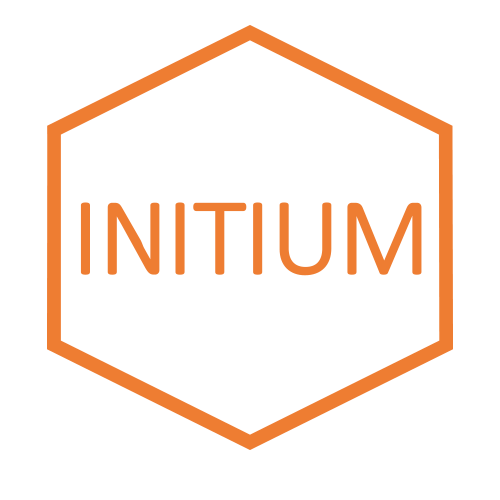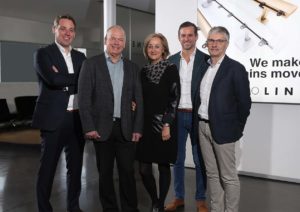Business transfer is a real challenge for our Flemish entrepreneurs. Almost 60,000 SMEs with a manager aged 55 or over face a generational change in the coming years. But in more than half of those companies, the children indicate that they do not want to continue the business. Those businesses have to choose: quit or find a transferee. The search for a suitable buyer is not always easy. UNIZO spoke with Wim Verhoeven who three years ago left his company Decoline to an investment group.
From its headquarters in Pelt, Decoline operates as a producer and distributor of high-quality curtain suspension systems and window decoration, The company was founded in 1990 by Wim Verhoeven and taken over by investment group Renardmont at the end of 2019. And remarkably, former owner Wim Verhoeven is still active today as a member of the board of directors,
Hole in the market
Verhoeven starts as an independent interior design specialist and grows by lol managing director of a solid SME. And all because of the gap in the market he discovered in the early 1990s. “My focus as an interior specialist was on window decoration. But I didn’t find my liking in the products available on the Belgian market at the time. And so I started looking abroad for other suppliers. From one thing, hell followed quickly: I became a distributor in Belgium and distributed those products to my fellow decorators. That’s how Decoline was born.”
The company grew rapidly in those early years and his wife Chris also joined the business to oversee human resources. “After a short time, we already had an extensive network of dealers and several trade representatives. We had two major strengths: oils were available from stock and it could also be custom-made. As a result, we gained the trust of retailers and our customer base quickly grew to some 1,000 decorators in Belgium.”
Growth as a logistics manufacturer
But despite that success as a distributor, Verhoeven remains a bit on the fence. “Because of those good contacts May local dealers, we had many ideas to improve the existing range. But our suppliers did not always go along with this. That’s why we started mei own product development. That way, we took a solid lead over our competitors.”
And that also translated into the company’s turnover. “We are in a fairly stable, mature market. But that in-house development did allow us to increase our turnover step by step lol eventually around 10 million euros a year. Although that had more Ie to do with our rapidly growing market share in Belgium than with rising demand. Around 2010, the biggest growth was over and our turnover stabilised as well. By then we had about 60 employees.”
“My goal was to ensure the future of the company as a full-fledged business and also get guarantees for the staff.”
No changing of the guard
In 2012 – Verhoeven was 55 by then – he started thinking about the company’s future. “Because of that constant growth, I felt more and more like a manager than a developer. And was I really the most suitable person for this? We then recruited an external CEO for general management. But that was not a success and a few years later we had to change tack again. I came back fully on board and had a lot of work to do to put right what had gone wrong. But by now I was older again and so the issue of succession became more pertinent.”
At the time, Verhoeven was trying to get both his children excited about the family business. “My daughter, for instance, sat on the company’s advisory board after her studies. But I soon noticed that the real interest and intrinsic drive was missing. That’s unfortunate, but you have to accept that. Meanwhile, both of them have built fine careers elsewhere.”
Difficult path to business takeover
Once succession by the children was definitely off the table, Verhoeven explored the piste of taking over Decoline. “I was 60 years old by now and felt my energy waning. And our staff were also worried about the continuity of the company. So it was high time to shift up a gear. I contacted May an external expert to start an acquisition process. My goal was to ensure the company’s future as a full-fledged business and also get guarantees for the staff.”
And that immediately proved to be the major stumbling block to an acquisition by a foreign manufacturer. “We held talks with several large firms. But each time they turned out to be mainly interested Ie in our customer portfolio and wanted to divest the rest Ie. What they described as ‘optimising synergies’ turned out, in most cases, to simply be a reorganisation. And that was a clear no-go for me. Later, we also had contacts with our Belgian sector peers. But those counterparts were mainly interested in our business model. And for most of them we were also just too big. They did not dare to take the risk of an acquisition. So the whole process fell silent after a while.”
Anchoring via real estate
Just when Verhoeven thought he would have to stay on as CEO forever and three days, the takeover nevertheless gained momentum again. “I got in touch via-via with an investor who already had several companies in the manufacturing industry in his portfolio. He was looking for an acquisition in a different sector. I had a good feeling about it and we took it a step further fairly quickly. Together with some other investors, he had set up the investment company Renardmont and it was with them that we would eventually go into business.”
And that new investment group did turn out to be interested in the whole package. “Those other candidates wanted to close things here as soon as possible. But my intention was to keep Decoline in Pelt, even though the premises were in a different company than the business activities. Originally I planned to keep the property out of the takeover Ie and rent out hell business premises to the new owner. But my wife made me change my mind. She convinced me that it was better to sell the building with it. Because by acquiring the property, the acquirer would also make an investment in the current location. And that turned out to be the key to anchoring hell business – literally – locally.”
Value and price
It is an iron law in business acquisitions: value is not the same as price. “During due diligence – the book examination – the whole company is vetted. But I am proud to say that with us, everything was right. Determining the value and the takeover price is of course a complex matter. As an owner, I mainly see the value of the assets. But an acquirer looks at the return and uses a certain multiplier to determine his price. In the end, we came to an agreement in late 2019 that both parties could agree on.”
“By acquiring the property, the acquirer was making an investment in the current location. And that proved key to anchoring the business locally.”
Retaining expertise
Sale contract signed? Then it usually stops for the ove rlater. But not in this case. The nie uwe eige naar did not let Verhoeven’s knowledge and experience go and asked him to sit on the board of directors. “Until early 2020, I still served as CEO and for the past three years I was indeed active as a director. And recently they asked to add another 3 years. Daa r I am happy to accept, although a chapter has been closed. I am now involved in the company in a different way and can also let go of it more. Besides, I also have a real estate company, so I do stay active.”
Today, Decoline is still doing very well. “The corona outbreak was a shock for everyone, but that whole period has given us the wind in our sails in retrospect. Both 2021 and 2022 were very good years. The fact that my wife and I brought the company to a safe haven makes us feel good. We now also take the time to do what we didn’t get around to before: travelling. So we hope to do that a lot in the coming years.”


